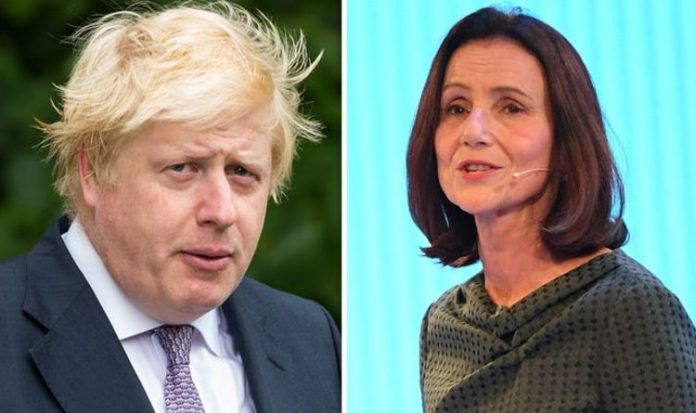Intense talks are currently ongoing between the UK and EU in a bid to hammer out a new trading relationship. If no agreement is reached Britain will trade with the EU on World Trade Organisation (WTO) terms from the beginning of next year.
This means tariffs will be imposed on many products travelling between the UK and Europe.
Speaking to The Guardian Dame Carolyn, who is stepping down next week, called for a Brexit deal.
She said: “A deal is enormously better than no deal.
“The thing that’s painful is that it has taken so long to get to a resolution.
“I think we will get a deal. The remaining issues look soluble.”
The CBI is an umbrella group which claims to speak for 190,000 UK businesses.
It endorsed remaining in the EU ahead of the 2016 Brexit referendum.
Dame Carolyn insisted the CBI has come to accept Brexit, but wants it to take place in a managed way.
READ MORE: Fishing chief erupts at Barnier for demanding access to UK waters
“It [Brexit] has had a momentum of its own.
“It has been almost a perfect storm. The economy has gone into suspended animation while we resolve this seismic issue.
“I hope we can have a resolution so we can move on.”
Trade negotiations between Britain and the EU became deadlocked over European fishing access to UK waters and what level of state support can be provided to industry.
Despite formally leaving the EU at the end of January Britain is currently in a Brexit transition period, meaning many European laws continue to apply and the UK’s pays into Brussels budget.
However, this comes to an end at the end of the year putting intense pressure on trade negotiations.
Boris Johnson has repeatedly insisted the UK is prepared to walk away unless Brussels offers satisfactory terms.
Dame Carolyn did express confidence that British business can make a success of Brexit.
She commented: “Business will do everything possible to make the best of it. There will be areas to explore.
“There will be areas where it will be good to align with the EU but when it comes to AI and the industries of the future, we could find new ways to shape the regulatory environment.”







